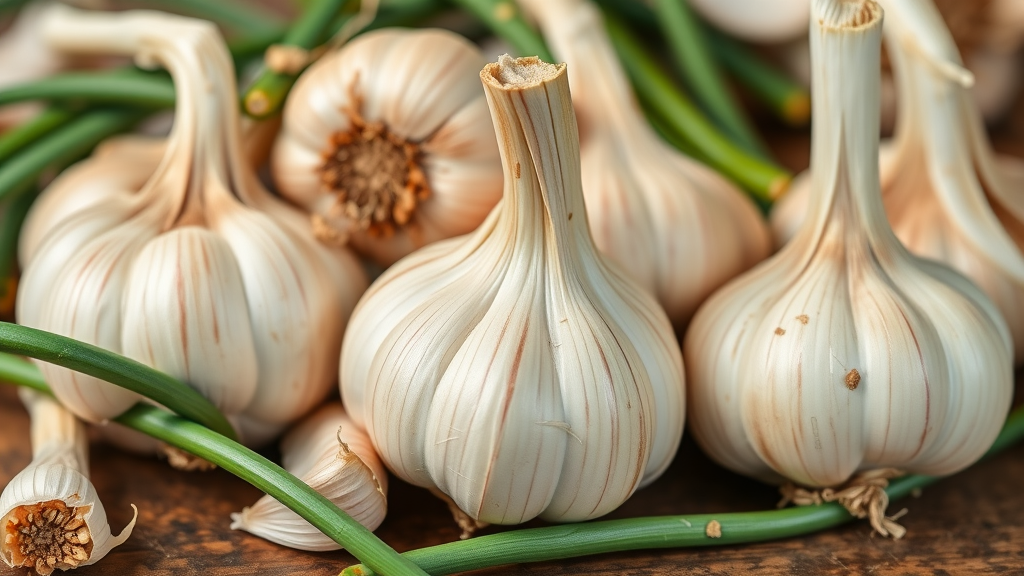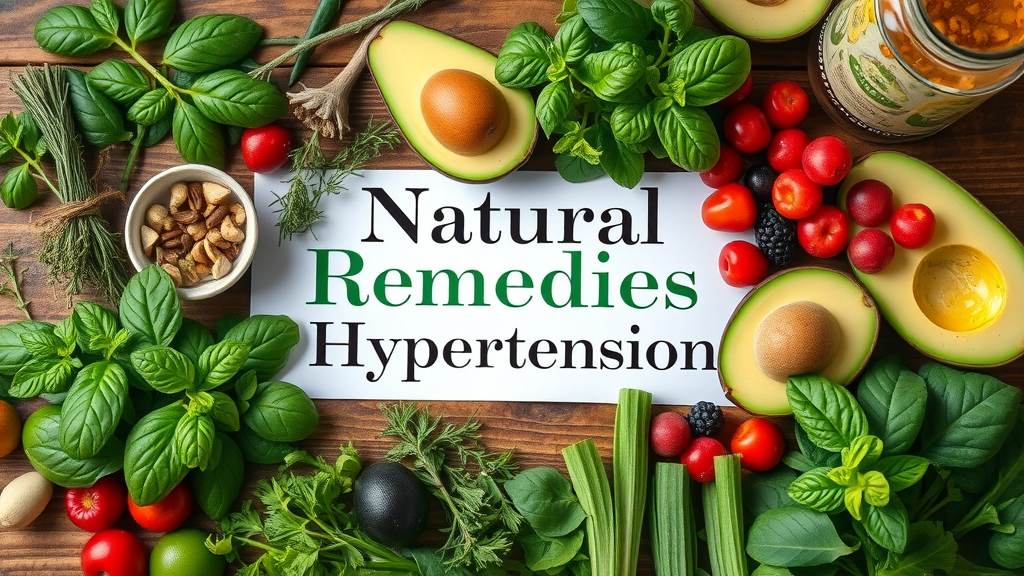
In our increasingly stressful lives, hypertension affects millions, often leading to serious health issues. But what if you could take control naturally? In “Discover Effective Natural Remedies for Hypertension: Your Guide to Lowering Blood Pressure Naturally,” we delve into the power of nature’s solutions. By understanding these remedies, you can not only lower your blood pressure but also enhance your overall well-being. Join us on this journey to reclaim your health with safe, effective strategies that promote a balanced lifestyle and empower you to make informed choices.
Understanding Hypertension and Its Impact on Health
What is Hypertension?
Hypertension , or high blood pressure, is a condition where the force of the blood against the artery walls is consistently too high. This can lead to serious health complications, including heart disease and stroke. Blood pressure is measured in millimeters of mercury (mm Hg) and is expressed as two numbers: systolic (the pressure when your heart beats) and diastolic (the pressure when your heart rests between beats).
Risk Factors Associated with High Blood Pressure
Understanding the risk factors associated with hypertension is essential for prevention and management. Some of the primary risk factors include:
Age : Risk increases with age.
Family History : A family history of hypertension can increase your risk.
Obesity : Excess weight puts strain on the heart.
Physical Inactivity : Lack of exercise can contribute to weight gain and hypertension.
Diet : High sodium intake, low potassium intake, and excessive alcohol can raise blood pressure.
Stress : Chronic stress may contribute to temporary spikes in blood pressure.
“Identifying and addressing risk factors is a crucial step in managing hypertension and improving overall health.”
Natural Remedies for Hypertension: Overview of Effective Strategies
Dietary Approaches to Lower Blood Pressure
Diet plays a pivotal role in managing hypertension. Embracing certain dietary patterns can significantly lower blood pressure numbers.
Mediterranean Diet
The Mediterranean diet emphasizes whole grains, fruits, vegetables, fish, and healthy fats like olive oil. Research has shown that this diet can help reduce blood pressure and improve heart health.
DASH Diet
The DASH (Dietary Approaches to Stop Hypertension) diet focuses on reducing sodium and increasing intake of fruits, vegetables, whole grains, and lean proteins. This has been proven effective in lowering blood pressure.
Dietary Plan |
Key Features |
|---|---|
Mediterranean Diet |
High in healthy fats, fish, fruits, vegetables |
DASH Diet |
Low in sodium, high in potassium, rich in fiber |
Key Nutrients to Incorporate
Potassium-Rich Foods
Potassium helps balance sodium levels in the body and can help lower blood pressure. Foods rich in potassium include:
Bananas
Sweet potatoes
Spinach
Avocados
Omega-3 Fatty Acids from Fish Oil
Omega-3 fatty acids can help reduce inflammation and improve heart health. Fatty fish like salmon and mackerel are excellent sources.
“Incorporating potassium-rich foods and omega-3 fatty acids into your diet can make a significant difference in managing your blood pressure levels.”
Herbs and Natural Supplements
Certain herbs and supplements have shown promise in managing hypertension.
Garlic and Its Benefits
Garlic has been linked to reduced blood pressure levels due to its ability to enhance nitric oxide production, which relaxes blood vessels.
Hibiscus Tea
Hibiscus tea is rich in antioxidants and has been shown to lower blood pressure in several studies.

Lifestyle Changes to Manage Hypertension
Regular Physical Activity
Engaging in regular physical activity can help lower blood pressure and maintain a healthy weight. Aim for at least 150 minutes of moderate-intensity aerobic exercise weekly.
Stress Management Techniques
Managing stress is crucial for hypertension control. Techniques include:
Meditation and Mindfulness : Practicing mindfulness can help reduce stress levels.
-
Yoga and Breathing Exercises : Incorporating yoga into your routine can improve flexibility and reduce stress.

“Incorporating physical activity and stress management can lead to significant improvements in blood pressure control.”
Foods to Avoid: Reducing High Blood Pressure Risk
Limit Sodium Intake
Excess sodium intake is a significant contributor to high blood pressure. Aim to limit sodium to less than 2,300 mg per day, or ideally, 1,500 mg for those with hypertension.
Avoid Processed Foods and Added Sugars
Processed foods often contain high levels of sodium and sugar, contributing to hypertension. Reading food labels and opting for whole foods is beneficial.
Alcohol Consumption: Guidelines
Moderate alcohol consumption is crucial. The American Heart Association recommends limiting alcohol to one drink per day for women and two for men.

Integrating Natural Remedies into Daily Life
Creating a Balanced Eating Plan
A balanced eating plan that incorporates the above dietary strategies is vital for maintaining healthy blood pressure.
Tracking Progress: Measuring Blood Pressure at Home
Regular monitoring of blood pressure at home can help you stay informed and motivated about your health.
Consulting with Healthcare Providers
When to Seek Professional Advice
If you have concerns about your blood pressure or are considering natural remedies, it’s essential to consult a healthcare provider.
Role of Medication in Hypertension Treatment
In some cases, lifestyle changes may not be sufficient, and medication may be necessary. Your healthcare provider can guide you on the best treatment options.
Key Takeaways: Natural Remedies for Hypertension
Embrace dietary changes like the Mediterranean and DASH diets.
Incorporate potassium-rich foods and omega-3 fatty acids into your meals.
-
Engage in regular physical activity and manage stress effectively.
Limit sodium, processed foods, and moderate alcohol consumption.
Regularly monitor your blood pressure and consult healthcare providers as needed.
Frequently Asked Questions
Q: Can natural remedies completely replace medication for hypertension?
A: Natural remedies can complement medication but should not replace it without consulting a healthcare provider.
Q: How quickly can I see results from dietary changes?
A: Some individuals may see improvements in blood pressure within a few weeks of dietary changes.
Q: Are there any side effects associated with herbal supplements?
A: Yes, some herbal supplements can interact with medications. Always consult with a healthcare provider.
Conclusion
Incorporating natural remedies for hypertension into your lifestyle can empower you to take control of your health. By adopting a balanced diet, engaging in regular exercise, and managing stress effectively, you can lower your blood pressure and improve your overall well-being. Remember, consulting with healthcare providers is essential for personalized advice and safe practices.
By implementing these natural remedies for hypertension , you can pave the way to a healthier, more balanced life. Remember, the journey to better health starts with small, informed choices.

 Add Row
Add Row  Add
Add 




Write A Comment